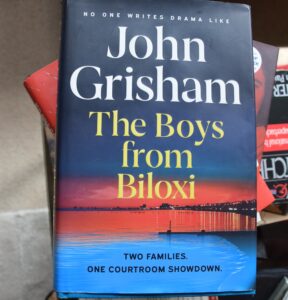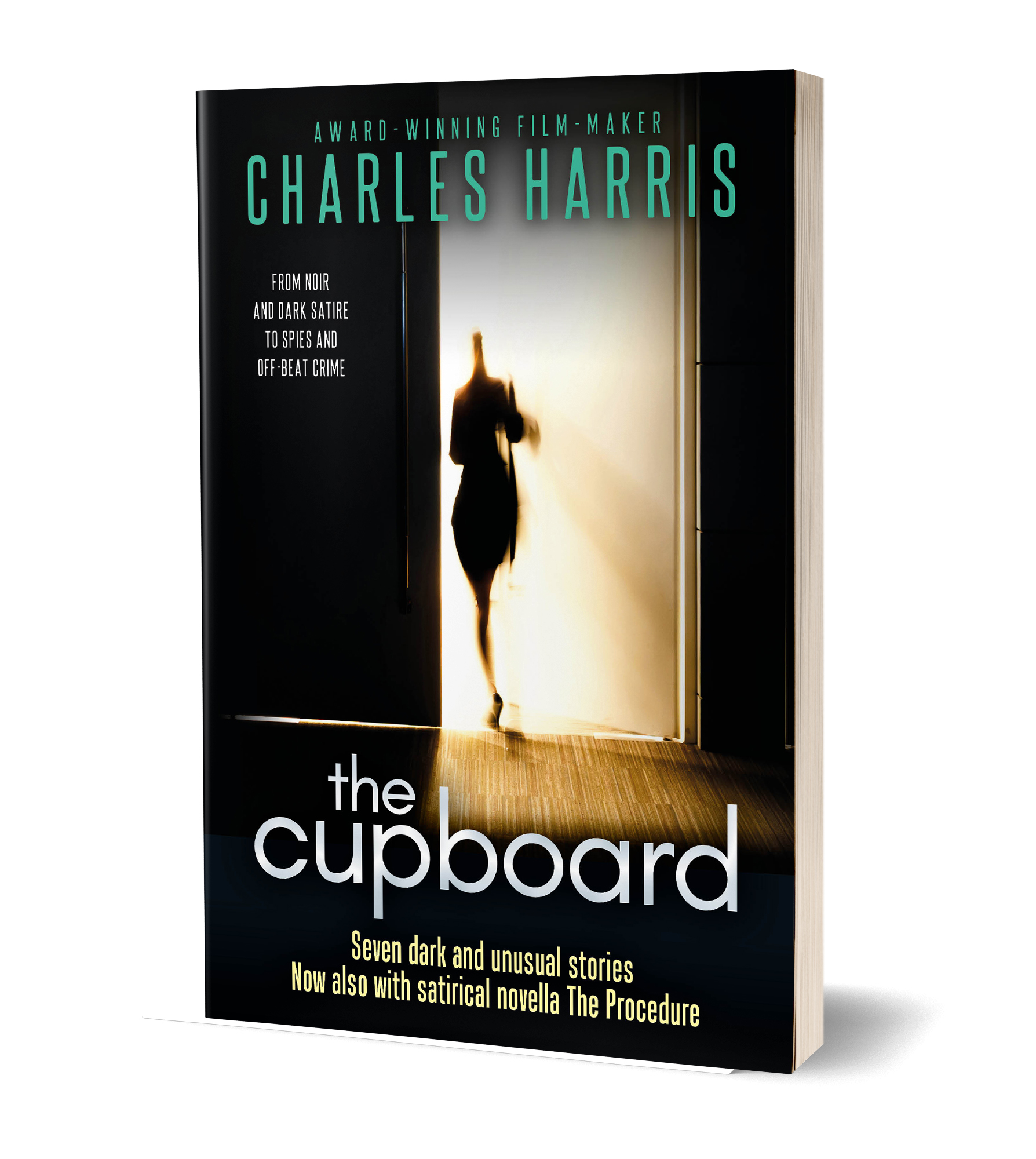The Boys from Biloxi. Has Grisham taken on too big a case?
18 Friday Aug 2023
Written by Charles Harris in Books, Reviews, The Library Corner, Thriller
Tags

THE BOYS FROM BILOXI
Not many writers can claim to have made a genre their own, but John Grisham and legal thrillers go together like an American judge and gavel.
So, when a new Grisham comes out, there’s a certain excitement. At least for those who like their heroes and heroines to know their law.
His latest novel, now out in paperback, is a saga about lawyers and criminals, which stretches over decades. It sets his fictional legal – and illegal – characters against a true crime background. According to the hardback jacket blurb, it “takes his storytelling to the next level.”
But does it work? Or has he taken on a case that’s too big even for him?
The Boys from Biloxi – review
This is not the first time Grisham has delved into the moral swamp that is Biloxi. Despite its position in the generally Bible-thumping, conservative state of Mississippi, Biloxi is famous as a rebellious enclave, offering copious amounts of booze, gambling and prostitution.
Criminals have thrived here, notably the gang known as the Dixie Mafia. This seedy setting has attracted Grisham more than once. This time, he spins an epic tale that runs from before the Second World War to the 1980s, and brings in true events, including a hurricane that devastated the area in 1969 – the second most intense in US history.
At the novel’s centre, though, lies two fictional families, the Malcos and the Rudys.
Keith Rudy and Hugh Malco are childhood friends, and stars of Little League. But their paths rapidly diverge. Hugh’s father, Lance, makes his money from vice and violence. And Hugh looks set to join the family business. Helped by a corrupt police force and district attorney who turn a blind eye so often they must get a crick in their neck.
While Keith’s father, Jesse, is an honest lawyer who runs for district attorney himself, dedicating himself to clean up the criminality. Keith, too, stands to follow in his father’s footsteps.
As the boys grow into men, the two families find themselves increasingly pitted against each other. And the question looms large: how far will Hugh take things against his old friend in his fight to stay out of jail. Or indeed death row?
Strength of character
Readers and critics invariably praise Grisham for his storytelling, and I wouldn’t disagree. He’s been at the job a long time and is expert at spinning a good yarn. His novels barrel along, with enough twists and turns to keep you involved. Boys from Biloxi has a massive twist, which I won’t spoil for you. A brave piece of writing.
Reviews focus less often on his characters, but they are central to his skillset. He knows how to create characters you care about, whether it’s Mitch McDeere, trapped in a criminal law firm in his breakthrough thriller The Firm, or here, Jesse and Keith Rudy, battling against the odds to clean up their town.
While an outline might suggest that he’s teetering on the edge of cliché, the execution is generally credible and fresh.
The bad guys are perhaps a little less rounded, a little more out of central casting. But they do their job of pushing the story forwards without straining credulity.
Death Row
One interesting theme that develops as the book goes on is the question of the death penalty. Grisham has been outspoken in his opposition to executing criminals, since researching his novel The Chamber, and non-fiction book An Innocent Man. This told the true story of an innocent man who’d spent 12 years on death row, before being exonerated.
Given his vehement views, then, it’s surprising to find that here, in The Boys from Biloxi, Grisham makes his hero support the death penalty. And courageous of him not to try to water down Rudy’s opinions. We understand why Rudy feels the way he does without interference from the author. Not easy for any writer with strong opinions of his own.
Truth and reconciliation
We need, however, to look at the role of the true crime background to the book. Because this is ultimately both a source of strength, but also weakness.
Bolting fiction onto fact is always a tricky number. They have such a different texture. It is well said that truth is stranger than fiction, as we will always accept odd plot points and strange characters more in non-fiction than if they’ve been made up.
We accept the picture of this crime-bedevilled town, however extreme, because it’s so clearly based on reality. For this reason, adding fiction to non-fiction often feels wrong – like painting people into a photograph. The textures don’t match.
To be fair, Grisham avoids this trap. The characters fit well into the real-life landscape of Mississippi. The true historical background also brings a useful freshness to the story. And an extra heft.
The novel could be seen as a parable of life in today’s deeply divided America. Where neighbour is pitted against neighbour.
Style vs substance
However, the true story background has also led to a certain weakness. Writers of historical non-fiction often choose an omniscient third-person style, in which the writer is able to hover over the story giving his overview. Grisham has clearly chosen this style for his fictional thriller, to underline its historical roots.
But this leads to a rather detached feeling. He narrates too many scenes “from above” as it were, rather than pulling us into the drama of the action. Much of the story is told in a journalistic rather than a dramatic style.
Beginner writers are exhorted to “show not tell.” Grisham makes the decision to do a lot of telling, rather than showing. Presumably to give the novel its “true crime” feel.
This would be less of a problem were the whole story to be true. True stories derive extra power from the knowledge that these events actually happened. These characters actually existed. But in The Boys from Biloxi these events didn’t actually happen and these people didn’t actually exist. So Grisham’s chosen style distances us from the events.
This is a shame, because the story, as invented, is a strong one and could have come over with so much greater impact. A brave editor could possibly have sent the ms back to Grisham, with instructions to make the more detached scenes come to life. But it would take a very courageous editor to tell one of America’s most successful thriller writers that he needs to rewrite.
Whatever his editor actually said, Grisham has delivered a good book, but not one of his greatest. An interesting story, certainly, particularly if you didn’t know much about the history of southern Mississippi in recent years.
And, despite its stylistic flaws, well worth a read.


Tell people what you think